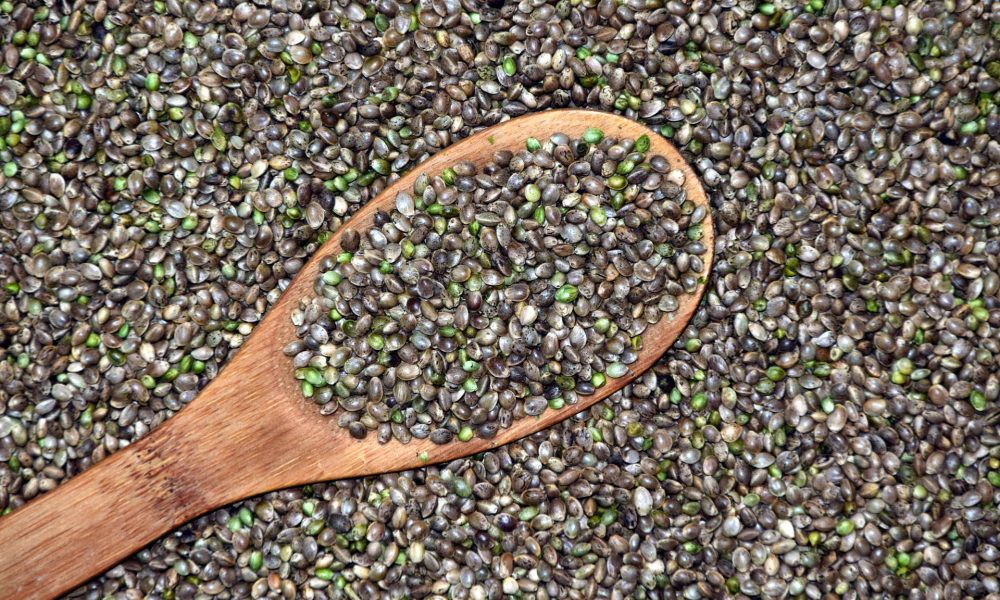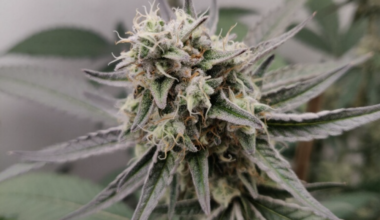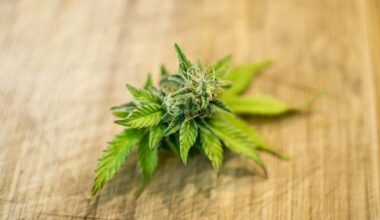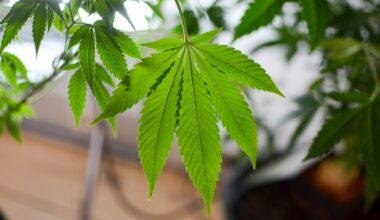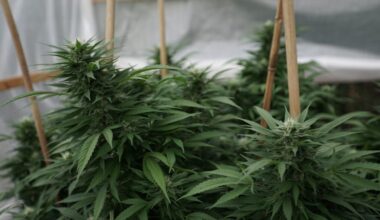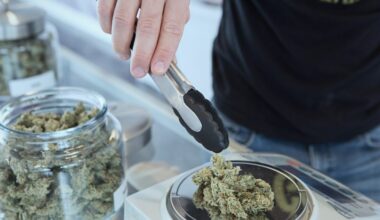The Department of Defense (DOD) is yet again reminding service members that they’re prohibited from using cannabis products, expressing concern that even using CBD-infused hand sanitizer or hemp granola could inadvertently compromise “military readiness.”
It’s unclear why military branches have felt a need to issue so many reminders about DOD cannabis policy over the years—a trend that picked up significantly after hemp and its derivatives were federally legalized under the 2018 Farm Bill. But on Monday, the Air Force Materiel Command Health & Wellness Team published yet another notice.
The division explained that marijuana remains federally illegal as a Schedule I controlled substance, and so service members cannot use it regardless of state law. Hemp and its components like CBD might be federally legal and widely available in state markets across the country, but those products are unregulated by the Food and Drug Administration (FDA), so there’s a risk that they contain more THC than indicated on labeling.
“The DoD and Service-level policies prohibit Service members from eating and using products made or derived from hemp to include CBD no matter the claimed or actual THC levels,” the notice says. “This policy is necessary to ensure military readiness while securing the reliability and integrity of the drug testing program.”
Know the rules: Even though some states have decriminalized or legalized marijuana for medical or recreational use, under federal law, Marijuana remains an illegal Schedule I Controlled Substance, with use prohibited by @DeptofDefense members. https://t.co/vITkijtZmG
— U.S. Air Force Materiel Command ✈️ (@HQ_AFMC) September 12, 2022
The notice lists various examples of banned items if they contain hemp derivatives like CBD. That includes gummies, oils, acne treatments, bath bombs, hemp granola, protein powder, yogurt, shampoo and hand sanitizer, for example.
There is at least one exception, the division said. The prohibition “does not apply to durable goods such as clothing.”
To that end, the U.S. Army said in a notice earlier this year that it is interested in making sniper uniforms out of hemp.
In the latest notice, DOD also said that there are resources available to service members and their families “whose lives are negatively affected” by cannabis use and are seeking treatment.
One of the first attempts by the U.S. military to communicate its cannabis ban came in the form of a fake press conference in 2019, where officials took scripted questions that touched on hypotheticals like the eating cannabis-infused burritos and washing cats with CBD shampoos. That was staged around the time that DOD codified its rules around the non-intoxicating cannabinoid.
After its initial 2019 announcement, the department more broadly reaffirmed that CBD is off limits to service members in notices published in 2020.
About one year after hemp was federally legalized, the Air Force sent out a notice that similarly warned against using CBD products that are commonly found on the market. A Massachusetts base of the Air Force told pilots last year that they could face disciplinary action for possessing any type of hemp product, even if it’s “for your pet.”
Officials with the military branch also said the previous year that it wants its members to be extra careful around “grandma’s miracle sticky buns” that might contain marijuana.
The Navy, for its part, issued an initial notice in 2018 informing ranks that they’re barred from using CBD and hemp products no matter their legality. Then in 2020 it released an update explaining why it enacted the rule change.
The Naval War College has gone so far as to warn Sailors and Marines about new hemp products on the market, issuing a notice earlier this month that says members can drink a new Pepsi-owned Rockstar energy drink that contains hemp seed oil.
The Coast Guard said that sailors can’t use marijuana or visit state-legal dispensaries.
A factor that may have influenced these policy updates is that the Substance Abuse and Mental Health Services Administration released guidance to federal agency drug program coordinators in 2019 that outlined concerns about THC turning up in CBD products and causing failed drug tests. The agency issued an updated warning in 2020 after several more states voted to legalize marijuana.
That said, a general recently said that the Air Force and Space Force are reviewing marijuana policies and are considering a “common sense” change that could give potential recruits a pass if they test positive for cannabis.
Meanwhile, the U.S. Department of Veterans Affairs (VA) has separately faced criticism over its stance on cannabis issues.
In March, for example, VA made clear that it won’t provide support for treatment involving marijuana as part of a new grants program aimed at preventing veteran suicide.
VA’s position on marijuana has been a source of consistent frustration for advocates and veteran service organizations who have been pushing for expanded research into the therapeutic potential of cannabis.
Medical Disclaimer:
The information provided in these blog posts is intended for general informational and educational purposes only. It is not a substitute for professional medical advice, diagnosis, or treatment. Always seek the advice of your physician or other qualified healthcare provider with any questions you may have regarding a medical condition. The use of any information provided in these blog posts is solely at your own risk. The authors and the website do not recommend or endorse any specific products, treatments, or procedures mentioned. Reliance on any information in these blog posts is solely at your own discretion.
